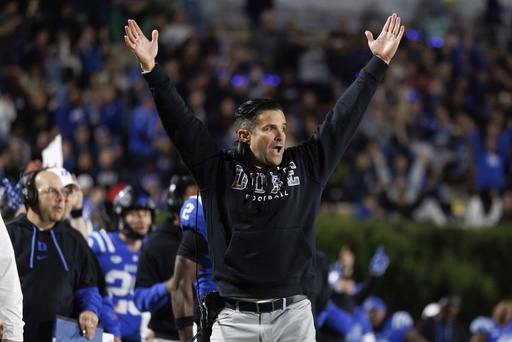CLEMSON, S.C. — Throughout his 17-year tenure as Clemson’s head coach, Dabo Swinney has expressed his disagreements with many officiating calls but has never expected that his complaints would lead to an alteration of a game’s result. Recognizing that officiating is a challenging aspect of college football, Swinney emphasizes the humanity of referees. “Listen, refs are people, too. None of us is perfect,” he stated, highlighting the inherent imperfections in the game.
Each week, Clemson’s coaching staff reviews footage from their prior matches to pinpoint penalties they believe to be incorrect or that need clearer explanations. These observations are submitted to the league’s office for evaluation. However, even if the penalties are acknowledged as wrong, they will not result in a game being overturned. The fundamental purpose of this review process is better communication, rather than altering outcomes.
Recent games have illustrated the significance of officiating calls; for example, during a close contest, No. 6 Miami narrowly triumphed over Louisville 52-45, largely due to a controversial reversal of a play in which the Cardinals’ Cam Ward appeared to fumble. The officiating crew ruled that Ward’s arm had been moving forward, thus classifying it as an incomplete pass rather than a turnover. Louisville’s coach, Jeff Brohm, voiced his frustration, calling it a poor decision.
Similarly, UConn’s Jim Mora Jr. expressed his discontent with an apparently missed pass interference call during their close 23-20 loss to Wake Forest, noting that such inconsistencies can significantly affect game momentum. “It’s on us to play better earlier, but it would sure be nice if it was a level playing field,” Mora commented.
Steve Shaw, the NCAA’s coordinator of officials, indicated that while fans might perceive certain calls as controversial and expect coaches to take action, typically, coaches inquire about more standard calls that do not have an immediate impact on the game’s result. “They’re usually not that highlighted,” Shaw explained, noting that such communications allow officials to clarify their reasoning to coaches.
This established communication line is crucial; for instance, after feedback from coaches, the NCAA can deliberate on potential rule changes. A notable example is the modification of targeting penalties, where the automatic ejection rule has evolved to allow for video review and reconsideration of calls.
In the Atlantic Coast Conference (ACC), Al Riveron, the supervisor of officials, oversees the examination of officiating matters, promising a written response within two days. If a coach has lingering concerns, Riveron offers the chance for a follow-up discussion. Likewise, the Big 12 Conference emphasizes transparency, allowing coaches to address officiating inquiries directly with their leadership team.
Pat Narduzzi, the head coach of No. 19 Pitt, finds value in receiving clarity regarding calls, recounting an incident involving a penalty against his player Rashad Battle, which the ACC later deemed incorrect. “We expect them to be perfect, they’re not going to be perfect, our players are not going to be perfect, and our coaches are not going to be perfect,” he stated, echoing a sentiment of shared accountability across the sport.
North Carolina’s Mack Brown, the active coach with the most wins, highlighted the importance of understanding officiating interpretations for both assistants and players. “If we think that’s a bad call and they think it’s a good call, then tell us how, why are we teaching it wrong?” he reasoned, emphasizing the necessity for a mutual understanding of penalties.
Shaw pointed out that open communication between coaches and officials can facilitate progress, allowing teams to navigate challenges more effectively. However, such discussions often remain confidential, as conferences have mechanisms to reprimand and fine coaches for public criticisms of officiating.
For example, Narduzzi faced a reprimand and a $5,000 fine earlier this season for his remarks following a close victory against West Virginia, reiterating that the scrutiny of officiating calls can lead to disciplinary actions within the league.
Swinney argues that submitting plays for review fosters accountability among officials, potentially impacting which referees are assigned to crucial postseason games. He believes that if officials exhibit poor performance consistently, their chances of working in high-stakes matchups could diminish.
Ultimately, the question remains whether this process can be beneficial after a tough loss. Duke’s coach Manny Diaz succinctly answered, “No. When you lose, it stinks absolutely all the time.”



